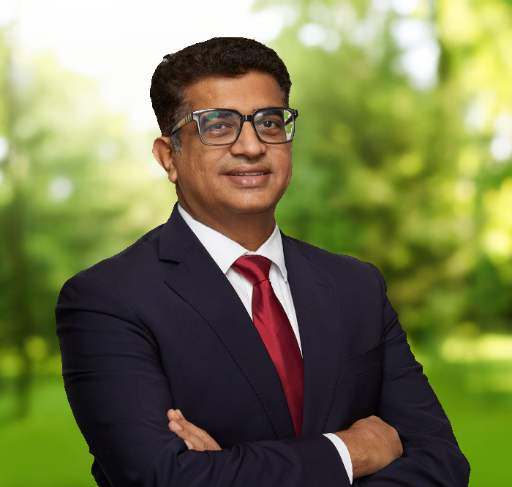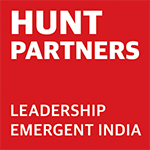Amit DiwanCountry Head of Hines India
Amit is the Country Head for Hines in India. In his role, Amit is responsible for development, acquisition, and asset management across Delhi NCR, Bangalore, Mumbai, and Pune.
Amit has a track record of starting and scaling up businesses as an intrapreneur. He started GE Real Estate’s operations in Singapore in 2006 and scaled them across Thailand, Philippines, Malaysia, and Vietnam. He started Indiareit / Piramal Fund Management’s business in North India in 2010. Amit began his career with Marakon, where he was based in Singapore and was part of teams that advised the C-suite of large corporations across 9 countries in the Asia Pacific region.
In 2015, Amit joined Hines to serve as Chief Investment Officer and was responsible for a separate account with a Middle Eastern sovereign wealth fund. In 2018, he moved into the role of Country Head.
As a member of the Executive Committee of ULI in India, a member of the CII Real Estate Committee, and a participant and contributor to CREDAI, FICCI, GRI and IVCA, Amit is working together with various industry constituents to make the built environment more sustainable.
Amit received his BA in Economics from the Shri Ram College of Commerce, Delhi University, and his Master’s in Business Administration (PGDM) from the Indian Institute of Management, Ahmedabad.

1. What is the mandate given to you by the Board?
In 2018, the Global Executive Committee, via regional CEO Lee Timmins, made me responsible for Hines’ activities in India. With a presence in 30 countries worldwide, Hines is known for quality, integrity, thoughtful design, and transparent dealing, and the same ethos is perpetuated in India. The business mandate is to be the best developer, capital manager and real estate partner in India – not the biggest, but the best.
2. How much of that has been achieved?
We are firmly on the path. We have maintained our standards and ethos as we scale up to deliver high quality and sustainable built environments in India. Hines has expanded its portfolio, from a one-city-two-project presence to four-cities-twelve-projects. As Indian real estate keeps getting regulated and becoming more transparent, our ambition for India keeps increasing.
3. What are the key challenges your organization is facing? Both immediate and long term. And what steps you are taking to overcome?
Thankfully, there aren’t too many immediate challenges, so let me share a couple of longer-term ones.
- The quantity of the deal pipeline in India is good but the quality can be better. As a result, deals take a long time to fructify and, coupled with typical emerging market volatility, we must evaluate a longer list of opportunities before we can conclude deals. The success rate on deals in India is lower than in any of the other countries that I’ve done business in.
- Execution delays in India are more than they should be, for the sake of India’s reputation as a place to do business. India is a low-cost low-margin economy to start with, but unnecessary delays in execution make the time-weighted returns worse. I wish more people kept their promise of doing their job on time.
4. How have the Pandemic/technology/globalization/economy affected your sector?
There are two major impacts for us:
- Foremost, there is an unstoppable flight-to-quality. Landowners, buyers, occupiers, investors, bankers, and other stakeholders in the industry want to deal with better counterparties and better-quality spaces. Obviously, we are delighted with this change.
- Secondly, acceptance of remote working is a permanent shift – so the hybrid working model is here to stay long-term, for most companies. As a result, the design of the office and its amenities, and greater use of technology in operations are fundamental shifts. Also, as a result of the same trend, the demand for bigger homes / premium homes / second homes is on a structural rise.
5. What is your talent strategy? How do you draw a balance between home grown vs lateral hiring at the leadership level?
We have a diverse and inclusive workforce. We highly value those with deep Indian roots and, at the same time, exposure to western concepts and/or context, via their education or experience living/working overseas.
We are open to hiring at all levels, as long as the culture and value systems match.
6. How does your organization identify and develop future leaders?
This is a critical topic for us, given the high degree of delegation and empowerment we have at Hines.
We recruit top talent that thrives in entrepreneurial environments and is keen to take on responsibility. Our annual mapping of all employees on (a) past performance and (b) future potential, ensures that we are focused on identifying future leaders. We have extensive training, in-house mentoring, and external coaching. We promote international rotations, global knowledge transfer, empowerment & risk-taking, and the opportunity to set-up and grow businesses in new geographies and new product lines.
7. Every crisis is a learning opportunity, what lessons have you picked up from COVID?
In February 2020, we had no idea that the entire country would effectively be in a lock-down just a month later – March 2020. And after more than a year of COVID experience, in March 2021, we had no idea how severely the Delta variant would hit us in April 2021. When we can’t even predict accurately one month ahead, imagine trying to forecast 5-10 years.
COVID has demonstrated the limitations of human beings in being able to forecast the future, being prepared for contingencies beyond the ordinary, and being ready to make quick decisions when the opportunity presents itself.
8. In a world full of Volatility, Uncertainty, Complexity & Ambiguity (VUCA), innovation has become one of the most important factors to transform a crisis into an opportunity. How do you promote Innovation?
We established a dedicated team for Innovation in India pre-COVID, in 2018. Our global office of Innovation in US is at the forefront of innovation and are working with advisors to identify and fund disruptive ideas internally. The India & US teams are constantly engaged in two-way communication in the quest for identifying, evaluating, and implementing promising new ideas.
9. How do you define and practice leadership?
Leadership is about clearly defining a vision, getting the best team in place, providing them with resources, and getting out of their way. I have had 18 bosses/managers in my career and learnt something about leadership from each one of them. I pay most attention to alignment of interest and celebrating mistakes & learnings. Our culture promotes helping one another in achieving common goals.
10. We see many Indian leaders on the global stage. How can more Indian leaders become Global Leaders?
Person-to-person, Indians are amongst the smartest in the world. As we become more confident, we will continue to see more leaders on the global stage automatically.
A few areas where I believe we can improve leadership skills amongst youngsters are (a) better teamwork, (b) making our thought-process explicit through better communication and (c) patiently planning & deciding before we rush to start executing.
11. What are the 3 most pivotal moments in your career that you learned from and/or that got you where you are today?
- In 1995, the freedom and support that my father gave me, to take up business studies (and not science like all others in the family), to pursue a career that I love (and not join our family business), was the best gift I could have received. It allowed me to own my decisions and I became more responsible in general.
- In 2001, my decision to join Marakon Associates (a strategy and management consulting firm) as opposed to the better-known HSBC and GSK allowed me to get tremendous exposure that I needed at that stage in my career. In 5 years at Marakon, I worked with CXO clients in 9 countries and across industries, which really helped me learn a great deal through “osmosis”. I am happy to have taken the risk of joining an unknown brand.
- In 2008, deciding to switch from a buy-side role (GE Real Estate) to a sell-side role (with JLL) was also unconventional, especially because I had four other buy-side roles on offer. But since I was relocating to India, the ~2 years at JLL allowed me to get a ringside view of Indian real estate (across cities, across property types, project life stages, and industry stakeholders) before committing to any role (buy side or sell side) which would be my longer-term career path.
12. What message would you like to share with young professionals?
We live in a world of uncertainty and distractions. So, focus on the goal without distractions. Have Arjuna’s focus to achieve your goal with sheer dedication and concentration.
